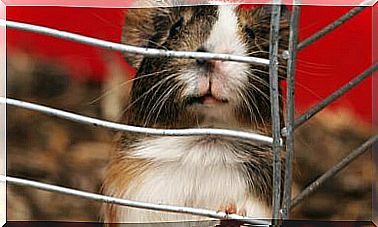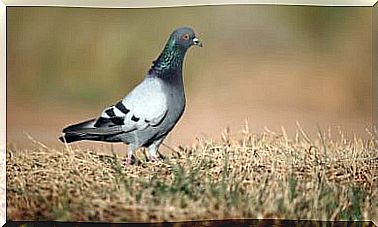How To Care For The Cats In A Colony?
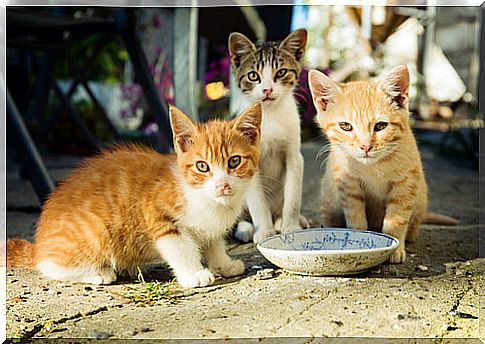
In the streets of all cities live cats that form colonies. They help control insects and ward off rat pests, but in an urban environment they don’t get all the food and protection they need. If you want to take care of the cats in a colony, we give you a few tips:
The importance of taking care of the cats of a colony
Contrary to what many people believe, in order for the colonies of cats to disappear from the streets, animals cannot be moved or made to disappear. It has been shown that the only effective way is to reduce the number of stray cats in the entire city: if all the cats in the same area disappear from one day to the next, animals from another colony will come to take their place.
Although we know that the presence of these groups is beneficial for humans because they eliminate rats and insects such as cockroaches, street life is not easy for cats. However, a balance can be found in which we can take care of the cats in a colony while controlling their health and overpopulation.
Feeding
One of the basic acts of caring for colony cats is ensuring that they are fed. However, not just any food is valid, neither for your digestive system nor for cleaning the streets.
Cats are carnivorous animals, and all fresh food provided should be raw and made up of meat only. If that food is also deposited on the street, the most hygienic thing is that it consists of nothing else.
Leaving homemade food scraps in a colony is harmful for everyone: for cats, because cereals, fried foods and vegetables make them feel bad; and for humans, because it attracts insects, gives off odors and makes the ground dirty. A street colony should be fed only with feed.
To take care of the hygiene of the place, you should periodically clean the pots in which you deposit the feed. If you use disposable containers, when you find an empty one, the right thing to do is take it with you and throw it in a bin. Cats do not like to live in litter and garbage should not be left in the streets.
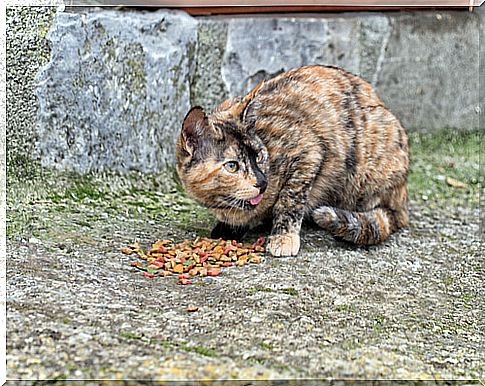
Remember that cats should also have fresh water always available, especially in hot cities or during the summer. Renew the water every day, as there are insects, such as mosquitoes, that nest in stagnant water and can become pests.
Leave food and water in places that are inconspicuous, but accessible to cats. If you put the dishes on busy or high-visibility streets, you run the risk of someone poisoning the dishes and increase the chances that someone will hit them and spill them on the ground. Hide the dishes in places that only cats can reach.
Health
Keep in mind that taking care of the cats in a colony is much more than feeding them. It is also necessary that you take care of the health of the animals in your care: contact a veterinarian, since from time to time you will need their help.
The ailments that affect stray cats are very varied, but above all you will face colds, skin problems, wounds caused by fights and eye infections. You should medicate, within your possibilities, cats that have problems, since their well-being also depends on their health.
Sterilizations
The only effective measure to reduce the number of stray cats is to sterilize them and prevent new births. In many cities, CES projects –capture, sterilization and release– are being launched, promoted by institutions or animal welfare organizations.
Although this step has not yet been taken in your area, nothing prevents you from doing it on your own. If you really want to take care of the cats in a colony, sterilize them. You can do it at the rate you want and you can even ask for donations or help from other people, but as long as they are not all sterilized, there will still be new births and new cats.
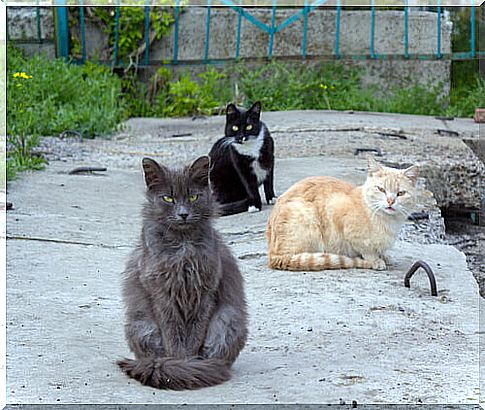
It keeps a census of the cats that belong to the colony, of those that are sterilized and of the new cats, probably abandoned, that appear. It is essential to get to know the animals you care for.
Adoptions
It is very difficult to give up adult cats from colonies: many do not want to be adopted. However, you can try to remove more docile adult cats and new litters when they start to eat alone.
You can get in touch with a protector who will help you find adopters and screen the people who will give these animals a good life. The protector can make your job much easier, since they have experience and their ads to find families will go further than those you do on your own.
Caring for colony cats is a dedicated job, but very satisfying. Set an example with your actions and teach those close to you that people who care about stray animals are compassionate and hard-working. Only in this way, together, can the quality of life of the colonies be improved.







